
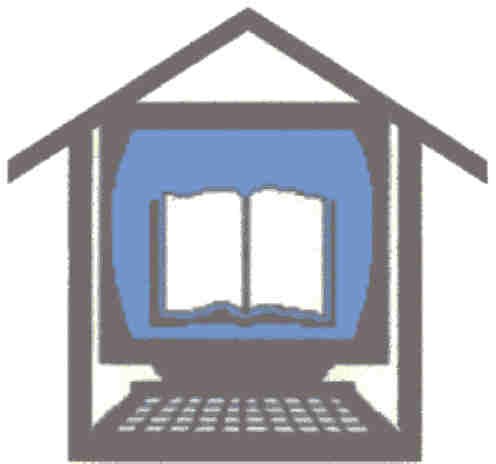
My Websites








My Products


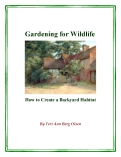
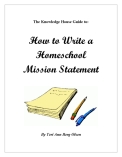

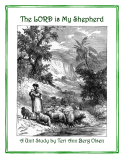
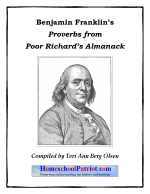
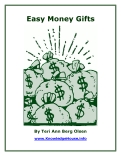

My Affiliates
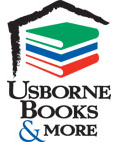




~ April 2011 ~
Dear Readers,
April is a special month in many ways. One of the things I like about April is that it's National Poetry Month. I've always loved reading and writing poems. Recently I discovered the works of Edgar Guest. If ever there were a “Poet Laureate” for homeschoolers, it surely would be Edgar Guest! He wrote about the joys of home and family, motherhood and fatherhood, the virtues of honest labor and plain living. His poems really make you feel the love of family and a true appreciation of poetry. His down-to-earth verse is easy to read with traditional rhyme and rhythm - no "hifalutin" free verse or need to decipher hidden meanings. I've put together a collection of my favorite poems by Edgar Guest. Download the 50-page e-book here. It's a great resource for reading aloud, memorization, recitation, copywork, or just for fun. Enjoy!

Featured Article
Happy Spring... Easter... Passover... Resurrection Day!Spring and “springtime” refer to the season between winter and summer, as well as to ideas of rebirth, renewal and regrowth. At the spring equinox (usually March 20 in the Northern Hemisphere), the sun’s rays shine directly on the equator, making day and night nearly equal in all parts of the world. Day length gradually increases as the season progresses. The first signs of “spring” vary according to local climate, cultures and customs. Nevertheless, images of bunnies, baby chicks, and eggs come to mind when many people think of spring. These are all symbols of Easter, which was originally an ancient pagan festival celebrating the return of spring and commemorating the goddess of springtime, Eastre.
Easter is also the pivotal point of Christianity, commemorating the resurrection of Jesus Christ and celebrating the hope of eternal life. Although early Christian holy days were made to coincide with celebrations that already existed, some Christians now prefer to call their holiday “Resurrection Day” rather than continuing to refer to the name of the pagan goddess. In A.D. 325, the Roman Emperor Constantine issued a decree stating that Easter would be celebrated on the first Sunday that occurs after the first full moon on or after the first day of Spring. Ever since then, most Christians have observed Easter according to that rule. Consequently, Easter can fall on any Sunday between March 22 and April 25. This year it falls on April 24.
In many countries Easter is called “Pascha,” which comes from the Hebrew word “Pesach” meaning Passover, because Jesus is God’s Passover lamb. When Jesus sat down with his apostles at the “last supper,” it was actually to partake of the Passover. Pesach or Passover is a Jewish celebration that commemorates the emancipation of the Israelites from slavery in ancient Egypt. When God visited the last of the ten plagues on the Egyptians, He spared the Children of Israel by “passing over” their homes – hence the name of the holiday. The highlight of the Passover celebration is the Seder dinner, a family-oriented feast rich in tradition and ritual. In 2011, Pesach will begin at the sunset on April 19 and end at nightfall on April 25.
For more Easter facts, an Easter poem, Easter recipes, and Easter activities - click here.
Book of the Month

April is National Garden Month and Earth Day, and it's a great time for getting outdoors and studying nature. This Spring why not create a wildlife habitat for birds, butterflies, and other creatures in your yard! My “Gardening for Wildlife” e-book will walk you through the process of creating a wildlife-friendly yard and garden. This illustrated step by step guide includes: how to get started, planning checklist, required habitat elements, plant recommendations, maintenance methods, helpful habitat hints, scripture references, educational benefits, how to certify your habitat, additional resources. Makes a great family activity, homeschool project, and year-round unit study! 28 pages ~ only $4.95! Click here.
Famous Homeschoolers
Bethany Hamilton, a homeschooled surfer girl, had high hopes for making surfing her career. Then one day she was attacked by a shark that bit off one of her arms. Less than a month after the incident, the 13-year-old returned to surfing with an unbelievably positive attitude. Overcoming all odds, Hamilton went on to win several professional championships. The story of her tragedy and determination to rise above adversity has been told in hundreds of media outlets, both nationally and internationally, inspiring millions worldwide. Read her story here: http://www.famoushomeschoolers.net/bio_bethany-hamilton.html
Reading Between the Lines
It’s never too early to be thinking about a summer reading program for your family, and Usborne books are favorites of homeschoolers everywhere! Reading aloud to and along with your children is one of the best ways to encourage a reading habit that will last a lifetime. Screen-Free Week, April 18-24, would be the perfect time to start a habit of turning off the screens and turning on to reading!
Acquiring a core collection of books and reference resources is the first step in engaging kids to read. There is nothing like a challenging book to lift you up or take you to another world. And the "getting hooked" part is key. While incentive plans that reward kids with pizzas or certificates for reading a certain number of pages or books can certainly motivate reluctant readers, it's important to note that personal motivations to read have the most lasting value.
Usborne books are ideal for student centered learning and let children guide their reading time, making reading an enjoyable activity and not just another chore. The information in Usborne books is presented in an eye-catching format to excite readers and hold their attention. Text is enhanced with illustrations and organized into smaller "bites" to help with comprehension and make reading less overwhelming. Projects with step-by-step instructions accompany the science kits and activity books for hands-on experience. Questions and interactive pages encourage reader involvement and build thinking skills.
We’ve set up a Knowledge House eFair that makes it easy to get Usborne books. You will be able to see the top sellers, view the newest titles, and check out the internet-only sales (40-70% off!) and other special offers. This would be a great time to stock up on gift books for those spring and summer birthdays too! All you have to do is click through the link:
http://www.myubam.com/ecommerce/main.asp?sid=G1791&gid=112725152&afid=AFF11062&emkt=18&BFID=BF44876
Learning Links
Playing with Poetry (April is National Poetry Month.)
Thomas Jefferson (Thomas Jefferson was born on April 13, 1743.)
National Parks (April 18-25 is National Park Week.)
Kindergarten Day (Friedrich Froebel, the founder of the first kindergarten, was born on April 21, 1782.)
Freebie of the Month
Enjoy these free printables!
April & May Calendar - Print out these calendar pages and hang on your fridge, next to your computer, or keep in a binder. Includes a convenient list of holidays and special days, plus space for notes. Throughout the year, I will supply two printable calendar pages in each issue of this newsletter, while always keeping at least one month ahead.
Resurrection Word Find
(This will keep the kids quietly occupied for a while. I gave it a try and found about 25 words myself.)
Resurrection Scripture Strips
(Cut these out and place them inside plastic eggs.)
Easter Scripture Strips
(Cut these out and place them inside plastic eggs.)
Bonus! Print out a Lost Sheep Maze from my Psalm 23 Unit Study. Buy the e-book and get more pages like this! Click here to download my Psalm 23 Unit Study.
(Requires Adobe Reader: click here for free download.)
Quote of the Month
“The year's at the spring, and day's at the morn; morning's at seven; the hill-side's dew-pearled; the lark's on the wing; the snail's on the thorn; God's in his Heaven - All's right with the world!” ~Robert Browning
A Note From Teri...
Just a reminder... don't forget Screen-Free Week (formerly TV Turnoff Week), April 18-24! Instead of relying on televisions, computers, and hand-held devices for entertainment, participants in Screen-Free Week read books, daydream, explore, enjoy nature, and spend time with family and friends. Screen-Free Week isn’t just about turning off the screens for seven days; it’s a springboard to lifestyle changes that will improve overall well-being and quality of life. Why is turning off screens so important? Gary Small, one of America’s leading neuroscientists and the author of iBrain: Surviving the Technological Alteration of the Modern Mind, suggests that technology is altering the way human brains develop, function, and process information. In today’s technological society, we need to work harder on enhancing our social and empathic abilities. Dr. Small warns of the potential dangers in overusing technology – such as ADD, social isolation, and Internet addiction. However, Dr. Small emphasizes “it’s not that technology is bad, it just needs to be used wisely…. It’s all about balance, there’s value in both online and offline activities.” Talk with friends and neighbors, and especially your own family, about turning off the screens for a week. The goal is to limit recreational screen time, spend more family time together, and boost physical activity. So turn off the TV, pull the power cord on your video game system, and give the computer a break!
Happy Homeschooling!
